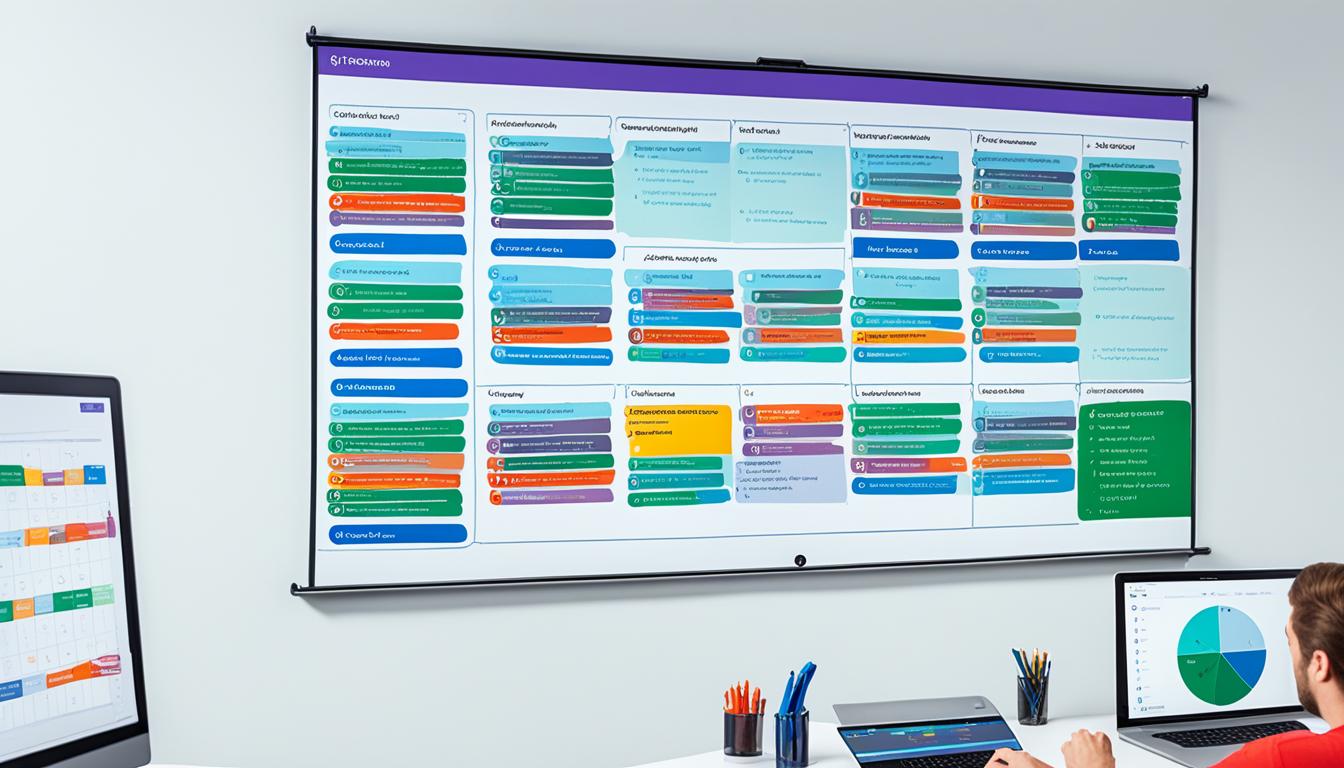Colleges Offering Online Courses Await Your Enrollment and providing diverse growth opportunities
Thinking about expanding your education or learning new skills but short on time for traditional classes? Online colleges are here for you. They have flexible start dates and open enrollment just for you. They know how important it is for you to start when you’re ready.
Online degree programs from top schools give you lots of options. You can study what you love and fit it around your busy life. Learning online means no more waiting for the right time to start your journey.
With online colleges that start anytime, you manage your time better. No need to stick to the traditional school calendar. There’s a wide variety of programs that fit many different interests and careers.
Online colleges with flexible start dates mean you can finish courses faster. This saves time and lets you learn more. You can pick up new skills in less time than you might think.
For working folks or parents, these online colleges help you juggle your life and learning. They offer the flexibility you need to keep up with everything.
Worried about getting financial aid sorted out? These online colleges give you more time to get everything ready. This means you won’t be rushing to meet deadlines.
Let’s look closer at the big plus of flexible start dates. We’ll also check out the many online degree programs these schools offer. See how learning online can open new doors for you.
Key Takeaways:
- Online colleges with flexible start dates make it easier to begin.
- They let you set your own pace and finish courses faster.
- You can study what you want, when you want, thanks to online learning.
- Great for those with full schedules, like professionals and parents.
- There’s extra time for preparing financial aid, so it’s not stressful.
The Benefits of Flexible Start Dates
Online colleges offer flexible start dates, which are great for students looking for a convenient way to study. With this option, students can choose when to start their classes not just at the beginning of the semester. This means they can work around their personal and work commitments.
Another plus is that these programs are usually not as long as traditional ones. This makes it easier for students. They can finish their classes faster, moving through their education at their own pace.
Online colleges also make it easy to apply anytime. There are no strict deadlines. This means students can start studying right away, avoiding long delays.
“I started my degree at a time that worked best for my job thanks to the flexible start dates online colleges offer. Applying was easy, and the whole process was stress-free!” – Emily Thompson, Online Student
Choosing a college that allows for flexible start dates helps students fit studying into their life. This changeable, accessible learning setting is great for a successful learning experience.
For more on how online schools and starting whenever suits you can benefit your education, keep reading this guide. Start your path to learning and success today!

Schedule Structures in Online Colleges
Online colleges shine with their flexible class start dates. This helps students with busy lives kick off their studies quickly. It’s all about meeting student needs.
These colleges have various start dates in a year. Some use semesters, others have quarters or trimesters. But with any model, you can start your classes when it’s best for you.
For those who like setting their own learning speed, online colleges have such programs. You can study any time, day or night. This lets you manage your studies with work or other activities easily.
Whether you like a set plan or prefer moving at your own pace, online colleges have something for everyone. They make it easy to balance your education with life. So, you can work towards your goals without rushing.
Online Courses vs Correspondence Courses
Online courses and correspondence courses are both flexible learning options. They let you learn at your own speed. However, they work differently and suit different people.
Flexibility and Interaction
Online courses let you study whenever and wherever. You can find lectures, assignments, and study materials online. This way, you can manage your studies with your job or home life.
Also, in online courses, you get to talk to your teachers a lot. You can chat with them, have video calls, and join discussions. This makes you feel part of a learning community.
Correspondence courses, though, are more about doing things on your own. You receive books and assignments by mail. You typically don’t talk to your teachers much. But it’s good if you’re good at working alone and staying focused.
Assessments and Exams
How you’re assessed in these courses is different too. Online courses often have quizzes and exams online. You complete these within a set timeframe and they count towards your grade.
On the other hand, correspondence courses are about doing projects and assignments. There are no big exams. This way, you learn and show what you know without time pressure.
Online courses let you blend flexibility with teacher interaction. With correspondence courses, you study mainly on your own. When choosing, think about what kind of learning and schedule you prefer.
In the end, both online and correspondence courses offer freedom and flexibility. What you choose depends on how much you want to talk to teachers and how much structure you need. There is a choice for every student’s learning style.

The Difference Between Synchronous and Asynchronous Courses
Check out the different course types online colleges offer. They start anytime. It’s key to know the difference between synchronous and asynchronous. Each suits different learning and life schedules.
Synchronous Courses
Synchronous courses mean you have to be online at set times. You join live lectures or discussions. It’s great for those who like a set schedule and enjoy real-time interaction. This style offers structure and keeps you engaged at fixed times.
Asynchronous Courses
Asynchronous courses are more flexible. You don’t have to meet at specific times. Instead, you can watch pre-recorded lectures or do assignments when it fits your schedule. This setup is ideal for working adults or anyone with a packed agenda. It lets you juggle work and school when you can find the time.
Everyone learns differently. Some love the routine of live classes and group work. Others need the freedom to study when it works best for them. Online colleges that are always open understand this. They provide both synchronous and asynchronous courses. This way, they cater to a wide range of student preferences and lifestyles.
Here’s an image visually depicting the difference between synchronous and asynchronous courses:

“Synchronous courses provide real-time interaction and engagement, while asynchronous courses offer flexibility and self-paced learning.”
Knowing the pros and cons of each course type helps students choose wisely. Whether you prefer a fixed schedule or the flexibility to study when you please, online colleges have options. They aim to tailor learning experiences to your individual needs and choices.
Conclusion
Online education has changed how students work towards their goals. Now, they can start their studies anytime. This is different from waiting for traditional school semesters.
Online colleges offer a variety of programs. From earning a degree to improving skills with certificates, there are many choices. They help students pick what suits their needs.
These colleges are all about easy access. They make education doable for busy people. The option to learn at your own pace is a big help. It means you can study without giving up other important things.




